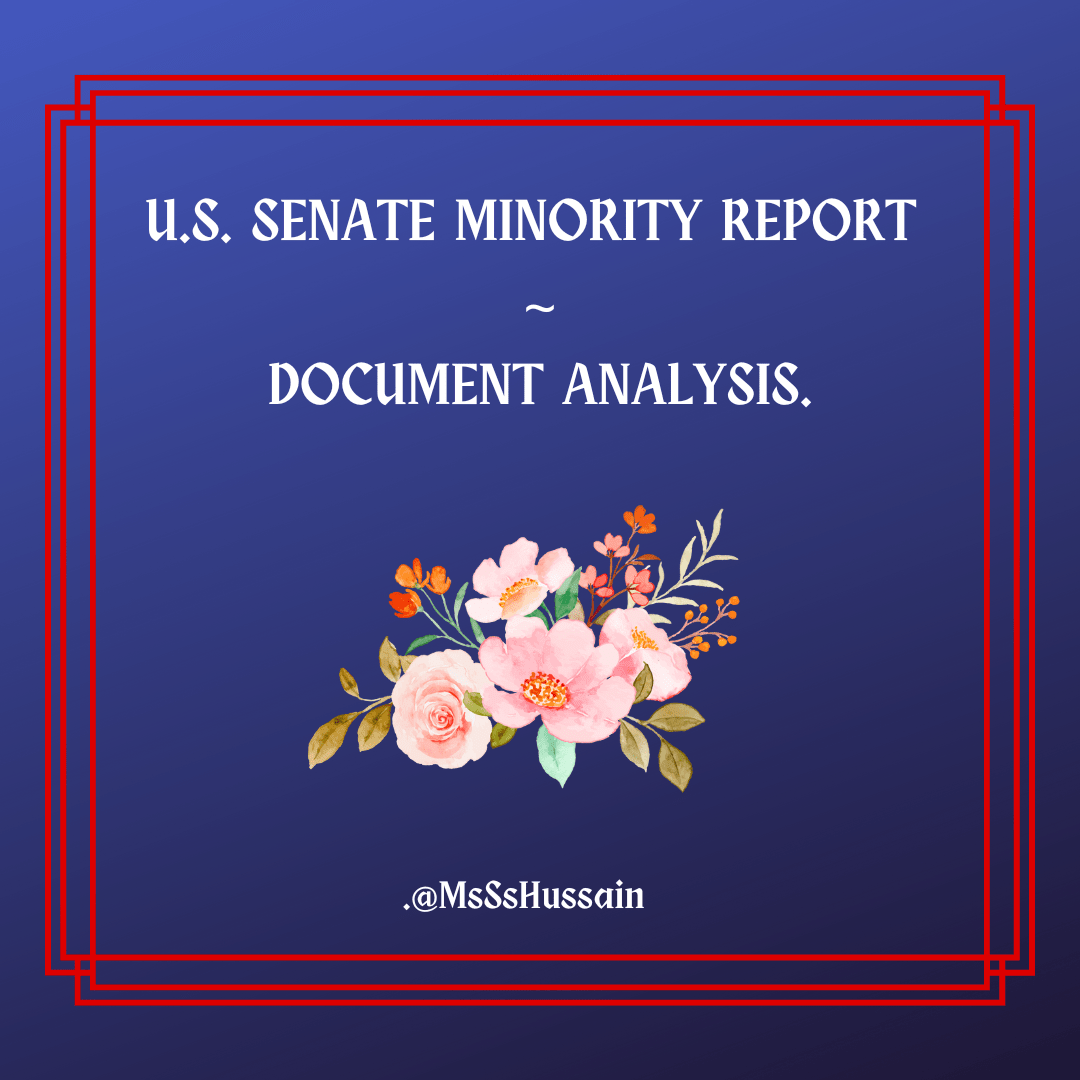As I completed the reading of the recent report that was released by Senator Marco Rubio (R-FL) and Jim Risch (R-ID) entitled: “Biden’s Border Crisis: Examining Policies that Encourage Illegal Migration” (United States Senate Committee on Foreign Relations Minority Report, 2022). I decided that it is important to offer some-kind of conclusive view / opinion. However, as with any-kind of reading, conclusions, view-points, can remain open-ended, given what we focus upon and the evolution of current events.
For the purposes of teaching and learning in-particular higher education, this document report could be utilized with the additions of journal article readings, pending what the focus is. And of-course for Government, Non-Government, think tank, policy analysts and so forth.The document is presented well. I found the chapters organized and appreciated the graphics as part of visual organization and geographical locations.
When the topics of the U.S. – Mexico border crossings is presented, the acknowledgement of vulnerable individuals is clear, as well as the humanitarian catastrophe. As individuals seek to escape from abuse and dangers that are described as unspeakable. Vulnerability and humanitarianism is juxtaposed with law-enforcement and asylum capabilities. With regional focus upon Mexico and Northern-Central South America.
The issues of concern are further described as we learn of the dangerous journeys that individuals from the regions make. Sometimes not knowing if crossing the U.S. Mexico border will be a success, even the ultimate sacrifices of the journey to death? This thought intersects with my previous blog entitled: MIGRATION, ORGANIZED CRIME AND HUMAN SMUGGLING | REFLECTIONS: THE U.S. SOUTHERN BORDER. I became deeply concerned about the American Dream, notions and values that connect with the: Land of Opportunity?
Crime networks that is termed as Transnational crime stems from the countries of: Mexico, Guatemala, Honduras, and El-Salvador. We can connect countries with similar situations such as Venezuela, where poverty stricken individuals are led to fill the demand and supply for illegal goods and services. This is also referred to as transnational organized crime (Roekel & De Theije,2020).
The report recommends the establishment of greater cooperation between the U.S. Government and countries of concern, to help asylum and migration management. The report encourages improvement to border security, and to assist Mexico and Central America. I appreciated the idea of shared responsibility and the unique position of America, that is geographically connected with regions of concern; and to also offer the idea of opportunity.
With the connection to current events and the U.S. Southern border, COVID-19 and Title 42, this will require further discussion and resolutions. Given that the legislation of Title 42 pertains to the U.S. and bordering nations. Also as we hear of the end of Remain in Mexico. I think that it is quite normal for Governments to consider: What are we going to do with Title 42? As we hope that COVID-19 trickles down so that the World Health Organization (WHO) declares the end of the health pandemic.
Reflections on transnational organized crime: I reflected upon illegal criminal networks. While these types of behaviours are considered illegal, it is important to recognize the intersections of vulnerability and survival seeking within the lens of humanitarianism, to address the root causes (Gavalis, 2020; Hussain, 2020, Roekel & De Theije, 2020). Especially as criminal networks are connected with human smuggling and homicides. Thus; the need to revisit topics of prosecutorial discretion, and the warning from the President Giammattei of Guatemala: who warned the Biden administration of the mixed messages that are being sent to human smugglers, and the dangerous journeys that the vulnerable partake to be met with false hopes. The Mexican President Andrés Manuel López Obrador also expected better treatment of migrants from Mexico, South and Central America from the Biden Administration (United States Senate Committee on Foreign Relations Minority Report, 2022, p. 23).
Further Reflections / Notes: Within the report there is room to compare policies between the Biden and Former Trump Administration. I appreciate the Republican acknowledgement of humanitarianism and vulnerable individuals that seek entry to the U.S. via the southern border. The report strongly recommends the termination of Migration Protection Protocols (MPP), however a Texas court-ordered injunction will continue to implement the MPP with good-faith.
References:
Gan, N. (2020). Rule of law crisis , militarization of citizen security, and effects on human rights in Venezuela. European Review of Latin American and Caribbean Studies, (109), 67–86. DOI: http://doi.org/10.32992/erlacs.10577
Hussain, S.S. (2020). Week 4 Written Assignment – Literature Review. [Unpublished Assignment for IP822A]. The Chicago School of Professional Psychology.
United States Senate Committee on Foreign Relations Minority Report. (2022, June 22). BIDEN’S BORDER CRISIS: EXAMINING POLICIES THAT ENCOURAGE ILLEGAL MIGRATION. https://www.rubio.senate.gov/public/_cache/files/996c632a-a8fc-42af-82b6-e17bd78e4fcd/8A8D08C49AD2639ECEDE548FAD397581.348219-mexico-northern-central-america-report.pdf
Van Roekel, E., & De Theije, M. (2020). Hunger in the land of plenty: the complex humanitarian crisis in venezuela. Anthropology Today, 36 (2), 8–12.
Related Blog Posts:
Image 1 – Created with CANVA.COM
Notes: These thoughts were originally hand-written on August 21st 2022. All views and opinions about the report as part of the document analysis are my own, and are cited as per required.
With Love & Kindness! 🇺🇸
